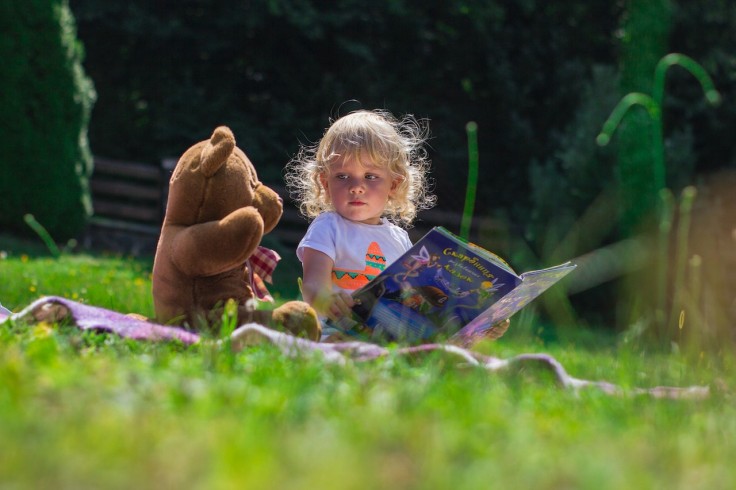
If parents see their children suddenly start to talk to someone who isn't there, they shouldn't be thrown off or hastily take it as a mental issue. Many children have imaginary friends, and these friends can play a significant role in kids' lives for years.
According to Victoria Hamilton of WebMD, studies say that 65 percent of children have imaginary friends at some point of their few years before they turn 7 years old. The young ones, like the toddlers, are more open and vocal about their imaginary friends as compared to kids under the school age.
Thus, to parents who have kids with imaginary friends, rest assured, they are not alone, and it is not something to be worried about.
Imaginary friends are also called made-up companions or invisible playmates. They can be other children, animals, mythical creatures, a child's toy that has come to life, or any other kind of imaginary companion.
As kids turn 2 or 3 years old, their imaginations start to expand, and they discover the fun in playing pretend. These kids who have imaginary friends actually know that these friends do not exist in real life.
They create them anyway because "creating a buddy" is enjoyable for them to do. More than this, they experience a genuine feeling of comfort because of these friendships, and they love that these friends are always available - anywhere, anytime, to play with.
The benefits imaginary friends bring with them
Some parents think that if their kids have imaginary friends, the kids are lonely, stressed, or going through emotional or mental struggles. This isn't the case!
The American Journal of Play states that having an imaginary friend is part of every childhood play. It is, in fact, not only normal but also healthy as it has shown benefits in childhood development like but not limited to the following:
Improvement of problem-solving skills.
Exploration of ideas, creative and non-creative.
Improvement of emotional management.
Opportunity to exercise new behaviors and roles.
A comfortable avenue for parents to start difficult conversations with their children.
A means for parents to ease their children through tough transitions and routines.
Further, kids with imaginary friends are said to be less likely shy or struggle with loneliness. They are also said to be more creative and confident compared to those who have no make-believe friends.
And, as shown in the list of benefits above, kids do not just have the benefits but the parents as well. Another benefit for the parents is the opportunity it gives for them to have insights and take a glimpse into their children's mind.
By observing their children interact with their invisible friends, they can learn more about what their kids think and feel about certain things and situations. It is also a platform to know what children like and don't like.
Read Also: How Play Can Achieve Learning Milestones
Important for parents to play along
Children should feel that their parents love and accept their imaginary friends. Thus, parents should support their kids' relationship with their invisible playmates. Kids will truly feel respected and loved through their support.
Clinical psychologist Dr. Eshleman expressed that parents might initially feel awkward when their kids talk to them about their imaginary friend, yet she encouraged parents to play along, Moms.com reported.
Parents should make their kids feel they are interested. Ask what the imaginary friend's name is, or what they do together or talk about. Play along with their stories and treat them like how their other real friends are treated.
But when do imaginary friends become a problem?
Here are some warning signs that the made-up companions are already affecting the child's development negatively.
The child experiences extreme anxiety when around other children.
The child is on repeat, sharing about traumatic experiences in detail to their imaginary friend.
The child is blaming their imaginary friend for constant hurtful or unacceptable actions.
The child is expressing fear of their imaginary friend.
Unexplainable changes in the child's eating or sleeping habits.
Having an imaginary friend even if the child id already 12 years old or above.
If the kids are showing these concerning signs, parents are advised to get in touch with their pediatrician, or have further tests if advice.
Related Article: Parenting Tips That'll Make Life Easier